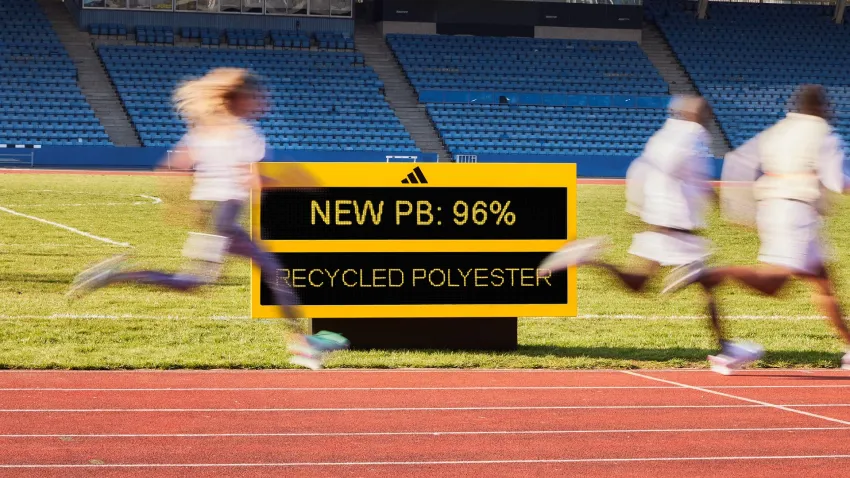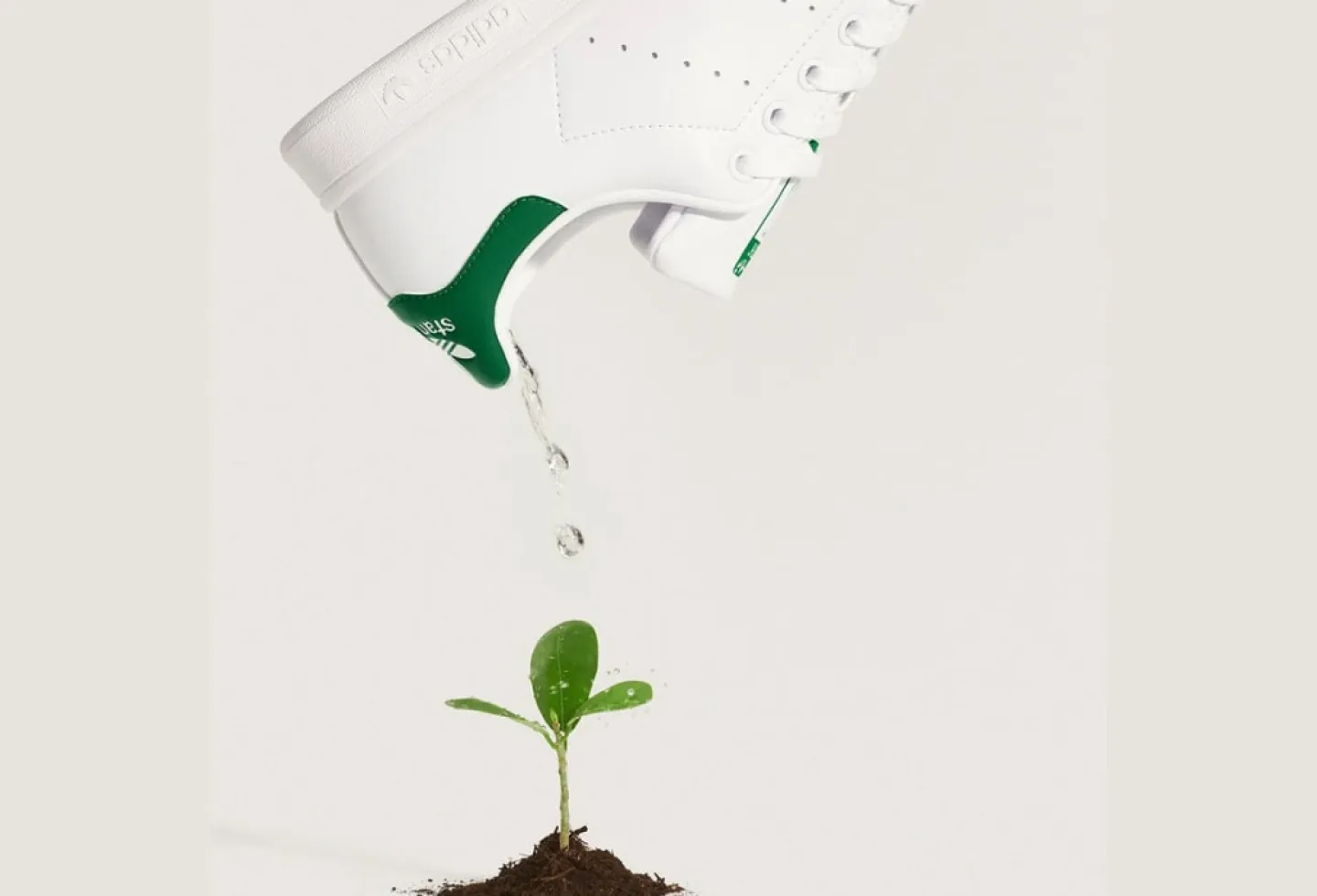In the picturesque Bavarian town of Herzogenaurach, Germany, the hallowed grounds of Adidas bore witness to a seismic shift.
As the behemoth sportswear brand celebrated its 75th anniversary in 2024, a daunting challenge loomed large. Despite decades of dominance, the sustainability awakening, i.e. Adidas sustainability, was threatening to disrupt their very core.
Consumers were gravitating towards eco-conscious brands, supply chains were under intense scrutiny, and the existential threat of climate change could no longer be ignored.
The future beckoned a reckoning – innovate or become obsolete in a world demanding environmental accountability.
Adidas
Founded in 1949 by Adolf “Adi” Dassler, Adidas has grown into a global sports icon, synonymous with performance and style.
Headquartered in Herzogenaurach, the $24 billion company boasts over 61,000 employees and is the largest sportswear manufacturer in Europe.
Its expansive product portfolio spans footwear, apparel, and accessories catering to athletes across sports.
While Adidas pioneered sustainable practices early on, publishing the industry’s first sustainability report, intensifying stakeholder pressures exposed gaps.
Consumers were seeking comprehensive eco-friendly offerings, governments were tightening environmental regulations, and investors were prioritizing ESG commitments.
Confronting these headwinds, Adidas outlined an audacious roadmap – to spearhead the industry’s sustainability transformation through disruptive innovation.
Defining the Core Issue
The fashion industry’s environmental toll could no longer be ignored – Adidas faced a stark reality. Its global supply chain, spanning material sourcing to manufacturing, generated staggering volumes of emissions, waste, and pollution.
Overreliance on virgin polyester and non-renewable resources compounded these impacts. Simultaneously, unethical labor practices persisted deep within opaque supplier networks.
Catalyzed by damning reports and consumer backlash, adidas’s very legitimacy was under threat.
The 2020 Australian Strategic Policy Institute study linked the brand to the alleged forced labor of Uyghurs in Xinjiang, sparking global outrage.
This wasn’t an isolated incident – recurring allegations of worker exploitation tarnished Adidas’s reputation.
On the environmental front, the numbers were sobering. In 2017 alone, adidas’s operations generated over 700,000 tons of greenhouse gas emissions.
Projections warned that unchecked, these emissions could double by 2030, exacerbating climate risks. Meanwhile, only 7% of the company’s products were sustainable, severely misaligned with conscientious consumer demand.
Previous initiatives like publishing sustainability reports and joining coalitions yielded limited impact. Piecemeal changes couldn’t upend Adidas’s unsustainable foundations ingrained over decades.
A transformative end-to-end overhaul was imperative to future-proof the brand’s long-term viability.
Adidas Sustainability
This holistic action plan charted an aggressive course toward comprehensive environmental and social reform throughout its value chain.
Product Innovation drove Adidas sustainability pivot. By 2025, Adidas aimed for 9 out of 10 product articles to be sustainable – containing materials with measurably lower environmental impacts.
Catalyzing this ambition was an epochal shift – replacing all virgin polyester with 96% recycled polyester by 2024, two years ahead of schedule. This groundbreaking milestone repurposed over 40 million plastic bottles annually into high-performance sportswear.

Achieving circularity was paramount. The iconic ‘Futurecraft. Loop performance shoes pioneered a fully recyclable design.
Customers could return products enabling Adidas to recover materials and reintegrate them into new lifecycle loops. Expanding circular services like product rental/resale further extended garment lifecycles to minimize waste.
Cutting-edge material innovations included Mylo, a mushroom-based leather alternative, as well as regenerative textiles derived from agricultural residues and wood fibers.
Biomimicking Nature’s blueprint, these disruptive technologies redefined industry standards for sustainable apparel.
Human Rights and Environmental Due Diligence processes were strengthened across suppliers to enhance transparency and accountability. AI-powered analytics flagged high-risk operations for audits and remedial action.
Simultaneously, partnerships with NGOs like Parley for the Oceans amplified grassroots environmental programs like coastal plastic interception.
Underpinning the product revolutions was an energy transformation realigning manufacturing with a low-carbon trajectory.
“At Adidas, we don’t only want to change how we do business, but how our industry does business”.
Martin Shankland, Executive Board Member responsible for Global Operations at Adidas
By 2025, Adidas aimed to achieve 100% renewable energy across owned operations while collaborating with fabric mills and suppliers to decarbonize their facilities progressively. Water stewardship programs targeted a 35% reduction in operational water use intensity.
Through holistic integration of sustainable design principles, alternative materials, and renewable-powered circular production models, Adidas endeavored to catalyze systemic change and chart a path towards climate neutrality by 2050.
The Outcomes of Adidas Sustainability
The bold Adidas sustainability roadmap ignited a seismic metamorphosis, reverberating throughout the entire sportswear ecosystem.
Between 2020 and 2025, the brand successfully slashed its carbon footprint per product by over 15%, achieved climate neutrality across operations, and transitioned to 60% sustainable product offerings.
Its pioneering interventions across the value chain not only reduced environmental impacts but unlocked new profitability avenues.
For instance, circular re-commerce programs enabled customers to trade in used products, cultivating brand loyalty while channeling goods into powerful closed-loop recycling streams. Novel revenue streams from rental and product-as-a-service business models emerged.
On the social front, advancing human rights oversight healed fractured stakeholder trust. Adidas’ ethical rankings bounced back, positioning it as an employer and partner of choice for sustainably conscious talent and suppliers.
Impressively, Adidas sustainability commitments sparked disruptive industry-wide emulation, catalyzing a self-perpetuating cycle of sustainable innovation.
It solidified itself as a frontrunner in the burgeoning eco-sportswear space, capturing lucrative market share amidst competitors’ greenwashed rhetoric.
Final Thoughts on Adidas Sustainability
Adidas’s transformative sustainability pivot imparts invaluable lessons on future-proofing business models.
Crucially, eco-conscious principles cannot remain siloed as peripheral CSR initiatives – they must be embedded into an organization’s core DNA driving strategy, innovation, and decision-making.
Leveraging disruptive technologies like AI analytics, biomimetic materials, and circular product design was pivotal to transcending outdated linear systems.
Yet technology alone is insufficient; catalyzing authentic stakeholder engagement while fostering transparency and human rights accountability enabled lasting systemic change.
Above all, with Adidas sustainability, they demonstrated that transcendent sustainability leadership requires fearless conviction.
Ambitious “unreasonable” targets forced the company to deconstruct its very foundations and reconstruct sustainable value chains from the ground up.
This magnitude of reinvention is imperative for businesses seeking resilient longevity in our rapidly evolving climate reality.



